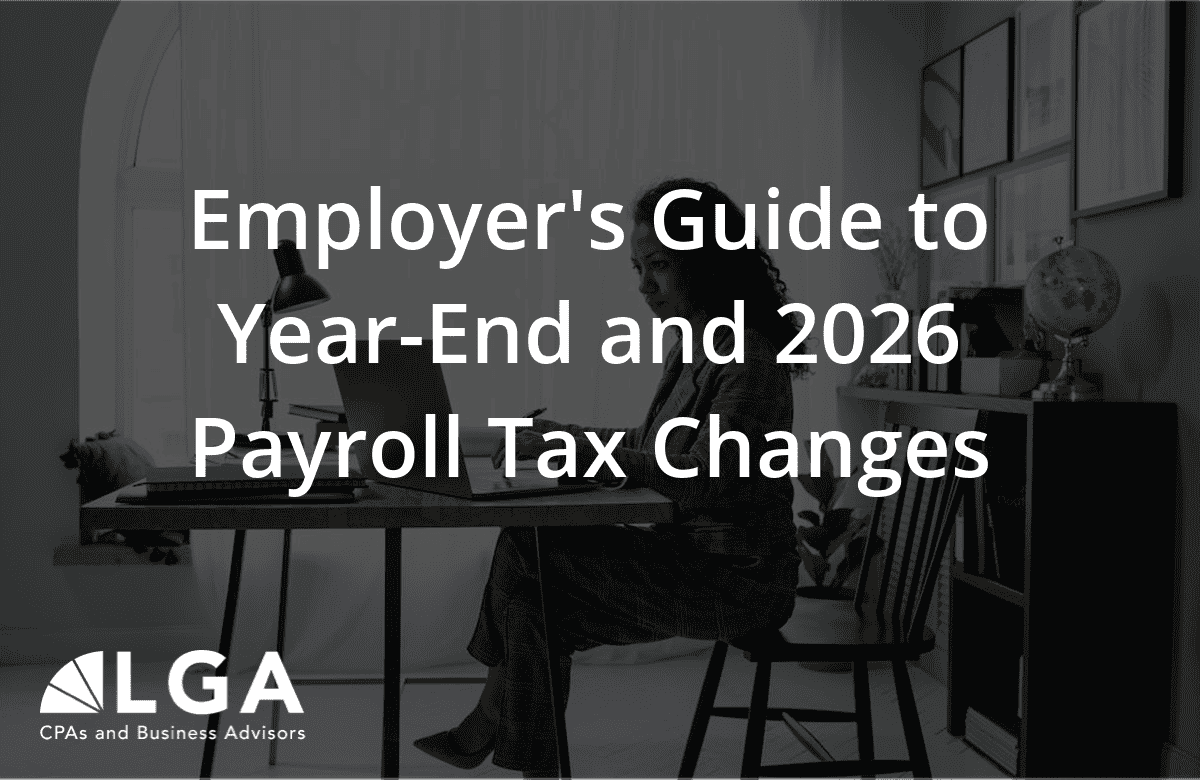
Authored by Aprio
At a glance
- The main takeaway: Expanding your restaurant business can be an exciting yet challenging venture that requires careful planning, sound financial decisions, and strategic execution.
- Impact on your business: Refrain from common pitfalls and unlock success in restaurant expansion by understanding key legal, financial, and operational factors involved in positioning your restaurant (and future ones) for long-term growth.
- Next steps: An advisor understands the complexities of the restaurant and franchise industry. Contact us today to initiate early discussions about your expansion efforts.
The full story:
Expanding your restaurant business is a major milestone, but one that requires careful consideration of several key factors. Whether you’re opening additional company-owned locations or considering franchising, it’s important to approach growth with the right strategy, structure, and support. In this article, examine several key areas to consider when planning your business expansion.
Key considerations
Legal and tax structure: Is your business built to scale?
Successful restaurant expansions begin with the proper legal and tax framework in place. As your restaurant business grows, make sure you have the correct entity structure to support multi-location operations while mitigating risk and remaining tax-efficient. Take some time to consider the following:
- Choosing the right entity type: The legal entity you choose—LLC, S corporation, C corporation, or partnership—affects your restaurant’s taxes, liability, and growth potential, and has distinct advantages and limitations, depending on your goals and ownership structure.
- Holding company: Using a holding company structure can streamline oversight, centralize accounting and tax compliance, and help isolate liabilities across individual operating entities.
- Separate tax filing entities: Structuring each restaurant location as a separate legal entity offers liability protection and flexibility in ownership. However, it also increases administrative complexity and compliance costs due to the need for individual tax filings and regulatory reporting.
Choosing the right legal and tax structure is vital for your restaurant’s growth. By assessing your entity framework, you can effectively scale your business, protect assets, and improve tax results. Working with advisors who specialize in the restaurant industry can help assure your structure supports both your current operations and future expansion plans.
Compliance across state lines
If you’re planning to expand across state lines, there’s more to consider than just securing a new location. Each state has its own regulatory, tax, and operational requirements that can impact your business. Key considerations include:
- Nexus and multi-state compliance: Expanding into a new state may create nexus, triggering income, sales, or employment tax obligations. Each state has its own rules, so understanding these requirements is critical to maintaining compliance as you grow.
- Non-resident withholding and composite tax filings: Operating in multiple states may require you to withhold state income taxes for out-of-state owners or participate in composite tax filings. These rules vary by state and can add complexity to your tax reporting.
- Sales and income tax variation: Differences in state tax rates and regulations can have a meaningful impact on both your profitability and compliance requirements. It’s important to evaluate these factors as part of your expansion planning.
- State-level incentives: On the positive side, many states offer tax credits, grants, or other incentives to attract new businesses. Identifying and leveraging these opportunities can help offset expansion costs and influence where and how you grow.
Market opportunities
Understanding market demand, customer demographics, location, and competition is essential to making informed decisions about expansions. Collaborating with restaurant-focused advisors—such as real estate brokers or franchise development professionals—can help you thoroughly evaluate factors like:
- Foot traffic and visibility
- Parking and access
- Neighborhood trends
- Rent and lease terms
- Local zoning and regulatory requirements
- Availability and cost of labor
- Proximity to suppliers and distribution channels
- Competitive landscape and market saturation
These partnerships not only deepen your understanding of the customer base and industry landscape but also offer valuable insights into whether a location aligns with your concept and how to tailor your approach for success.
Operational readiness and scalability
Before expanding your operations, it’s essential to assure your team and infrastructure are prepared to support growth. Before opening a new location, consider the following questions:
- Is your current restaurant operating smoothly without the need for constant oversight?
- Are standard operating procedures or an employee handbook clearly documented and in use?
- Does your existing team have the capacity to manage multi-unit operations, or will you need to hire and train additional leadership?
Investing in robust systems, processes, and documentation early on is essential to mitigating the risk of costly challenges as your business grows. Assuring that operations are easily replicable is critical to maintaining both brand consistency and a high-quality customer experience.
The bottom line
Defining your long-term vision is the first step in creating your expansion strategy. Decide if you want to build a family business, prepare for a sale or investment, or expand through franchising, as each option has its own operational, financial, and tax considerations. Defining your goals upfront assures that your growth strategy is aligned with your desired outcome.
Please connect with your advisor if you have any questions about this article.
This article was written by Aprio and originally appeared on 2025-07-24. Reprinted with permission from Aprio LLP.
© 2025 Aprio LLP. All rights reserved. https://www.aprio.com/key-considerations-for-expanding-your-restaurant-business-ins-article-rfh/
“Aprio” is the brand name under which Aprio, LLP, and Aprio Advisory Group, LLC (and its subsidiaries), provide professional services. LLP and Advisory (and its subsidiaries) practice as an alternative practice structure in accordance with the AICPA Code of Professional Conduct and applicable law, regulations, and professional standards. LLP is a licensed independent CPA firm that provides attest services, and Advisory and its subsidiaries provide tax and business consulting services. Advisory and its subsidiaries are not licensed CPA firms.
This publication does not, and is not intended to, provide audit, tax, accounting, financial, investment, or legal advice. Readers should consult a qualified professional advisor before taking any action based on the information herein.





